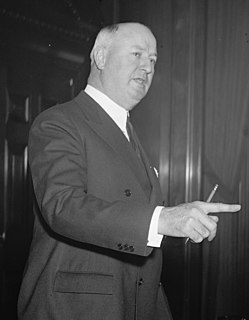A Quote by Rebecca West
To make laws is a human instinct that arises as soon as food and shelter have been ensured, among all peoples, everywhere.
Related Quotes
The laws of Nature take precedence of all human laws. The purpose of all human laws is one - to defeat the laws of Nature. This is the case among all the nations, both civilized and savage. It is a grotesquerie, but when the human race is not grotesque it is because it is asleep and losing its opportunity.
The church in all ages and among all peoples has been the consistent enemy of the human race. Everywhere and at all times, it has opposed the liberty of thought and expression. It has been the sworn enemy of investigation and intellectual development. It has denied the existence of facts, the tendency of which was to undermine its power. It has always been carrying fagots to the feet of Philosophy. It has erected the gallows for Genius. It has built the dungeon for Thinkers.
This food-and-shelter theory concerning man's efforts is without insight. Our most persistent and spectacular efforts are concerned not with the preservation of what we are but with the building up of an imaginary conception of ourselves in the opinion of others. The desire for praise is more imperative than the desire for food and shelter.
What becomes of the surplus of human life? It is either, 1st. destroyed by infanticide, as among the Chinese and Lacedemonians; or 2d. it is stifled or starved, as among other nations whose population is commensurate to its food; or 3d. it is consumed by wars and endemic diseases; or 4th. it overflows, by emigration, to places where a surplus of food is attainable.
Their usual mistaken premise is that they affirm some consensus among people, at least among tame peoples, concerning certain moral principles, and then conclude that these principles must be unconditionally binding also for you and me-or conversely, they see that among different peoples moral valuations are necessarily different and infer from this that no morality is binding-both of which are equally childish.
It is your organized religions that have made it clear through their most sacred scriptures that cruelty and killing is an acceptable response to human frailty and human differences. This goes against every human instinct, but organized religion has reorganized human thoughts. Some humans have even been turned against their own instinct for survival. And so people go around maiming and killing each other, because they've been told quite directly that this is what God does to them--and what God wants them to do to each other.
Food and sex have been bound together for a long time. I guess this is due to the intimate connection between the two most powerful instincts that predominate in life: the instinct to survive and the instinct to multiply. Nourishment and sex give us a great sense of pleasure. Having the wisdom to satisfy both desires—for food and sex—is the art of living well. I truly believe that this wisdom lies within us all.
Food is "everyday"-it has to be, or we would not survive for long. But food is never just something to eat. It is something to find or hunt or cultivate first of all; for most of human history we have spent a much longer portion of our lives worrying about food, and plotting, working, and fighting to obtain it, than we have in any other pursuit. As soon as we can count on a food supply (and so take food for granted), and not a moment sooner, we start to civilize ourselves.

































